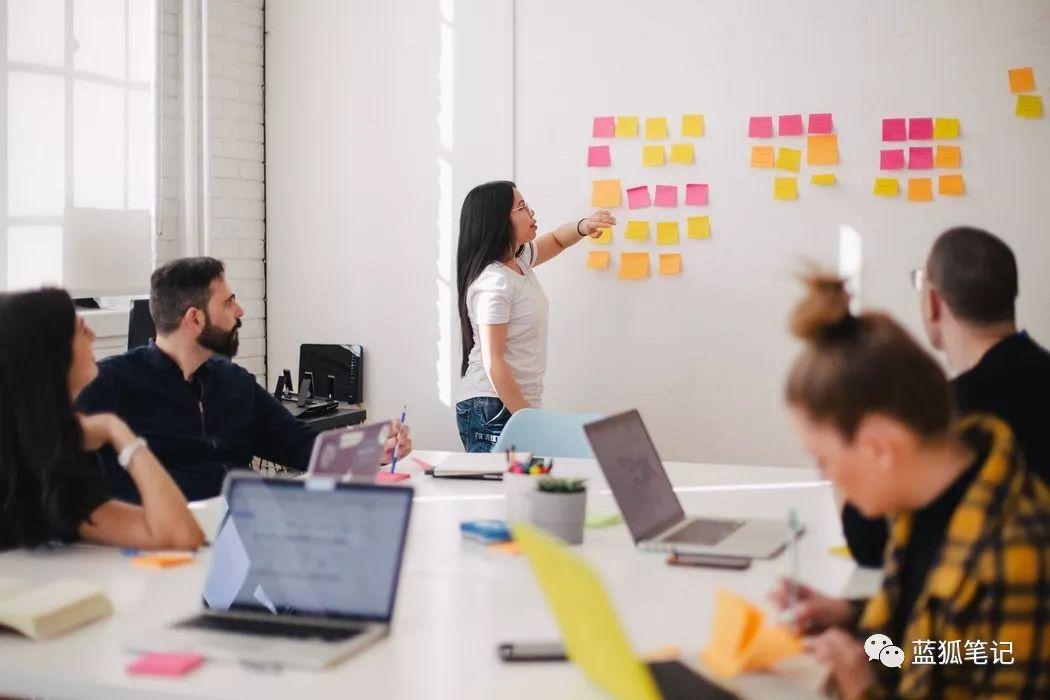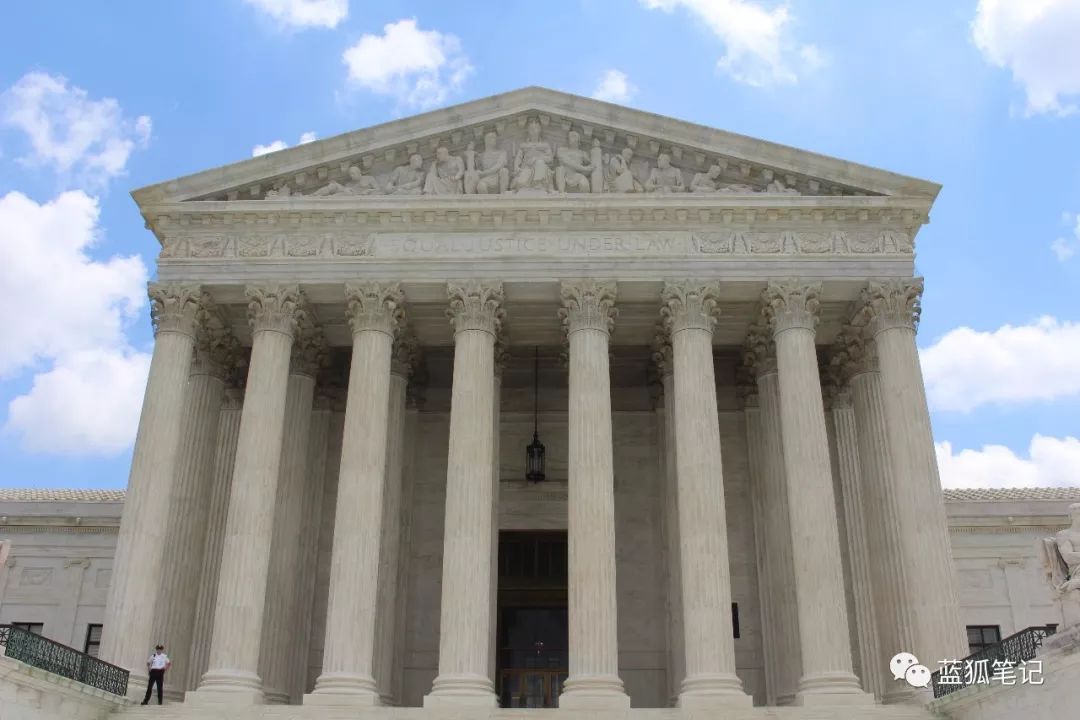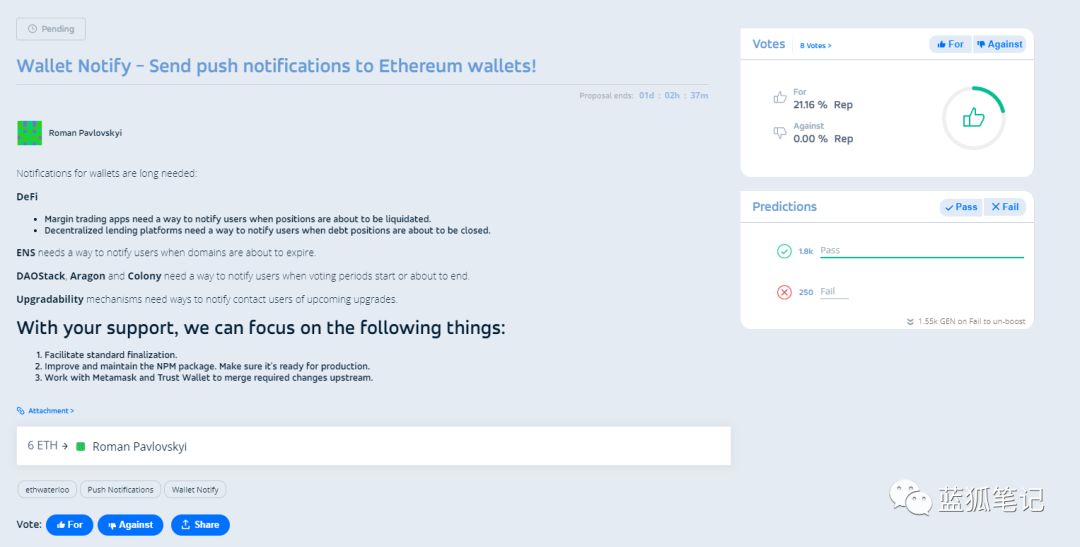Getting Started with Blockchain | What is DAO?
Historically, the concept of organization has been centered around a strict ownership structure. Over the past few decades, companies have begun to introduce open, flat organizational structures that allow more people in the company to express their voice. But in the end, making decisions for the entire organization is usually the responsibility of one or a few people.
When we look at large companies, a clear hierarchy is the standard. After all, Apple, Google, and Facebook all have CEOs, CTOs, and CMOs, as well as directors, managers, and corresponding subordinates. Early startups and large companies had well-defined ownership and leadership structures. Although it is possible to own equity in a company, and theoretically part of the organization, its impact is very limited.
For centuries, the dilemma of determining ownership, hierarchy, and rules has created major obstacles to organizational development. But what if the company doesn't necessarily need the owner? This problem has been based on idealism for most of history. Today, it is possible to achieve distributed ownerless organizations, thanks to the emergence of DAO (distributed autonomous organization).
- Business of second-hand mining machines: business of acquaintances, pits of strangers
- Babbitt weekly selection 丨 Hainan hopes to become a national digital asset trading demonstration zone; Blockchain Service Network (BSN) settles in Hangzhou
- Increase the number of docking exchanges and switch to new blockchains, USDT market share still leads
What is DAO?
DAO is also sometimes referred to as a decentralized autonomous corporation (DAC). It is an organization represented by rules encoded as a computer program that is transparent and controlled by shareholders or token holders. And not affected by the central agency. DAO uses blockchain to verify transactions.
Everyone in DAO can post proposals and vote to make decisions. Cryptocurrencies are used to represent key values, with the highest number of votes winning at the end of a specified period. This is in direct contrast to other forms of voting, which usually have the same weight per person. Usually, the question is "yes or no", that is, should company A develop product x?
Why do people want this?
Fast, borderless business decisions
If someone in country A wants to start a business with the founders of countries B and C, the current process of doing something is very complicated. Different jurisdictions have different requirements. The time frame required for decision making also varies. For example, suppose someone in country A can formally set up a business in one day, while the person in country B takes 3 months to start. Obviously, people in country B do not have the same resources as those in country A.
DAO provides a solution that allows everyone to work under the same conditions by observing a set of standard rules, regardless of their geographical location. Essentially, one of the main reasons for creating a DAO is to provide an equal system for the establishment and operation of an organization.
Organization-wide voting
Many companies have boards of directors to make important decisions. The problem with this is that these organizations usually vote on only a few selected issues and do not necessarily represent the majority of the organization. DAO can change this, it allows anyone in the organization to vote on issues they care about. For example, A may care about problem A and problem C, but not much care about problem B.
Through DAO, A can vote on tokens in proportion to the proposal according to the degree of interest. DAO does not use a system that ignores or counts input from members within the organization, but instead ensures that all votes are counted and displayed to everyone. (Blue Fox Note: DAO ensures that stakeholders within the organization, that is, token holders have the opportunity to express their opinions)
Cannot tamper with rules
Within any organization, policies and rules determine what can and cannot be done. For example, in a company, employees who fail to comply may be punished. If someone is late for work, this may or may not result in a pay cut. This decision can be automated with a timestamp, but not all organizations enforce it.
For example, if the boss is late, it may change this rule by setting an exception. In DAO, it ensures that the rules apply to everyone through code. An established set of rules within the organization cannot be tampered with unless the voter group agrees.
 Meetings are opportunities to form ideas and discuss ideas. DAO makes it easier for remote organizations to assess member interests and make it easier for ideas to turn from idea to reality.
Meetings are opportunities to form ideas and discuss ideas. DAO makes it easier for remote organizations to assess member interests and make it easier for ideas to turn from idea to reality.
Limitations of DAO
Many decisions depend on human activity rather than automation
Smart contracts have been implemented to make many human tasks automated. For example, a smart contract can decide whether A can send funds to B, based on whether it meets a set of criteria. The problem is that you can't do many activities with just a click of a button.
One case is about the allocation of working funds. For example, DAO can use smart contracts to send funds, and development teams use the funds to build apps. However, DAO cannot ensure that the development team completes the development or even cannot determine whether the funds were used properly. Mechanisms to minimize such issues may include requiring milestones to vote on the completion of large projects.
Lack of legal support
Although DAO is considered more efficient in organizing business operations due to its borderless nature, this can also be seen as a flaw. The legal status of such organizations is at best ambiguous, as official laws on the operation of DAOs have not yet been formulated. Smart contract codes appear to help protect individuals, but courts have not formally recognized these.
 DAO does not currently enjoy the same legal protections as other types of organizations
DAO does not currently enjoy the same legal protections as other types of organizations
The most popular DAO
- Dash DAO
DashDAO is managed by the master node (the equity holder holding at least 1000 DASH tokens). The master node can run important functions, including Instant Send and Private Send. They also voted on proposals to use Dash treasury funds. Anyone can submit a proposal to the masternode. Five DASH fees are required as the cost of anti-spam. If there are enough masternodes to vote, the proposal can be funded.
- BitShares
BitShares was released in 2013, and it is the first platform to implement DAO through a representative and witness election process. Representatives submit updates and improvements to the platform. Witnesses verify transactions and post them on the blockchain. Anyone holding BTS tokens, that is, those holding the platform's native tokens, can vote.
- Aragon
Aragon has a DAO that allows its token ANT holders to create their own DAO organization and vote on decisions. Other features include mining new tokens, paying users for various tokens, and customizing permissions settings for individuals within the organization. Projects like Liverpeer, MyBit, and BrightID all use Aragon.
- MakerDAO
MakerDAO uses DAOs: holders of its native token MKR can vote on decisions that affect its P2P lending agreement. MKR token holders vote to determine the annualized lending rate (stabilization fee), the mortgage asset ratio (mortgage rate) required to open each CDP, and the ability to close the agreement in the event of an ETH crash or other unforeseen circumstances.
- Moloch DAO
Members of Moloch DAO enjoy collective benefits from improvements in public goods funded by the DAO. Moloch DAO is currently focusing on funding the development of Ethereum 2.0.
- DAOStack
DAOStack provides functions for Alchemy. It is the first real-time decentralized application built on DAOStack. Alchemy is currently managing real-time DAOs for organizations such as ETHGlobal, Kyber, and Polkadot. When voting is over, people with the correct predictions can benefit from their pledged equity. GEN is DAOStack's native token, designed to help decentralized organizations effectively expand without compromising their value.
 Proposal and example of voting on ETHGlobal DAO, the framework is based on Alchemy dApp of DAOStack
Proposal and example of voting on ETHGlobal DAO, the framework is based on Alchemy dApp of DAOStack
Can Fortune 500 companies become distributed organizations?
In 2017, Siemens became the first Fortune 500 company to use DAO internally. The concept of running a large company entirely on DAO is interesting but not very practical. If a Fortune 500 company suddenly decides today to switch all of its governance to DAO, this will bring innumerable technical challenges (UI / UX, security, scalability) that need to be solved in order for the blockchain to support such an organizational structure. The limitations mentioned above will also apply. For participants, there is a learning curve.
Finally, there are human factors to consider. If the participation rate is too low, it can be difficult to tell whether voting actually represents the true majority of the organization. Too much reliance on DAO proposals and voting can also lead individuals to make many small decisions on a continuous basis, which fundamentally limits the time that voters must actually complete their assigned tasks. From a practical perspective, for the reasons mentioned above, it is more feasible to create a small organization that runs on DAO. (Blue Fox Note: The author believes that running large organizations on DAO is not feasible for the time being, so it is not realistic for Fortune 500 companies to run on DAO)
Risk warning: All articles of Blue Fox Note can not be used as investment advice or recommendations. Investment is risky. Investment should consider personal risk tolerance. It is recommended to conduct in-depth inspection of the project and make good investment decisions.
We will continue to update Blocking; if you have any questions or suggestions, please contact us!
Was this article helpful?
93 out of 132 found this helpful
Related articles
- Featured | US Government Arrests Ethereum Developer Virgil Griffith; Billion Defi Market
- Wine is chained, EY uses Ethereum public chain token traceability
- Litecoin will implement MimbleWimble technology? Charlie Lee: Currently Lightning Network is not compatible with MW technology
- The market does not have a reason to be bullish, so quietly watch the main force save itself
- Opinion: The global central bank digital currency competition has begun, China's CBDC will be an important extension of China's influence
- BTC is at the bottom, patience is the best investment
- Bitcoin investment from an asset allocation perspective: is Bitcoin speculative or a safe-haven asset?






